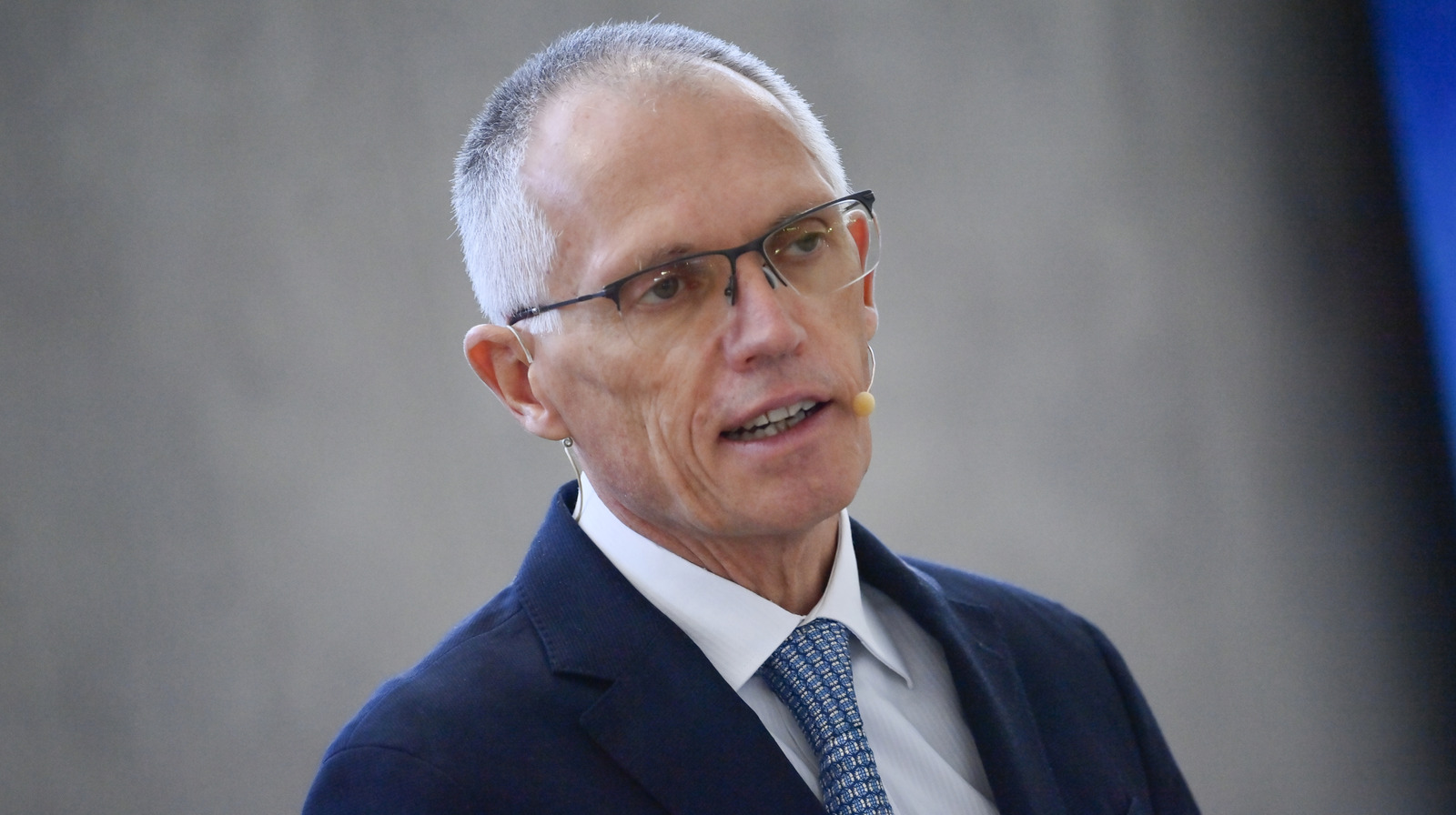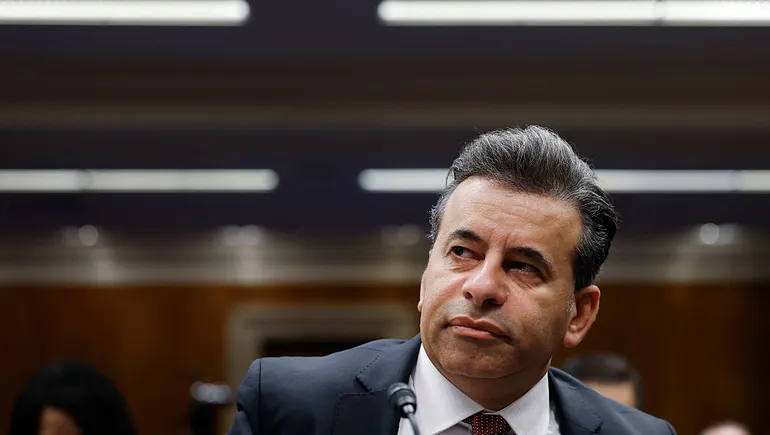From Paralegal To Chairman: Mitchell Silberberg & Knupp’s Leader Shares His Thoughts On Strategic Growth Planning
The leader of this midsize firm has the scoop on how to align a firm’s leadership, culture, and goals. The post From Paralegal To Chairman: Mitchell Silberberg & Knupp’s Leader Shares His Thoughts On Strategic Growth Planning appeared first on Above the Law.

In today’s legal market, where law firms continue to show an ever-increasing interest in strategic growth through mergers, we wondered how a firm could craft and follow through with a growth plan, without necessarily seeking out a merger. One industry insider thinks it’s certainly a possibility, with the help of buy-in from all stakeholders.
I recently had the pleasure of chatting with Yakub Hazzard, chairman of Mitchell Silberberg & Knupp, a successful midsize firm ranked at No. 21 on the Mid-Market 50, to get his thoughts on the matter. Hazzard has spent nearly 40 years at the firm, where he started as a paralegal and made his way to the upper echelons of management. Here is a (lightly edited and condensed) write-up of our lively conversation on law firm evolution.
Staci Zaretsky (SZ): If there’s anyone who understands what a strategic growth plan at a law firm looks like, it’s you. Please tell me how you think a firm ought to go about creating and implementing one, given today’s legal market.
Yakub Hazzard (YH): Many strategic plans collect dust, typically failing at the stage of implementation. That’s often the case because of lack of buy-in by various stakeholders who are impacted by the components of the plan. So either paralysis, at best, because of confusion or obstinate behavior, at worst, because of disagreement, torpedoes the successful implementation. Today’s legal market is shifting quickly, which puts pressure on and tempts leadership teams to move quickly in formulating and rolling out strategic plans. That increases the risk of not taking everyone along for the ride. Paying close attention to the culture of the firm is critical even if it slows the process. The saying of measure twice cut once couldn’t be more prescient. MSK has historically been a very democratic place, though that is certainly not unique to us. Rushing through a strategic plan without appropriate input would be catastrophic for a firm like ours, both in terms of damaging the culture and decreasing the likelihood of successful implementation. Our process was thorough, deliberative, and reflective. The resulting plan was built with measurable accountability and broad-based ownership.
SZ: With about 40 years of experience under your belt at the same firm, can you please tell me how you’ve seen MSK evolve, and what you think will allow the firm to successfully evolve even further with you at the helm?
YH: There is no question that the business of law has changed by leaps and bounds since starting at the firm as a paralegal almost 40 years ago. The pace of change, driven by numerous influences, has accelerated dramatically over the past decade, and it is definitely a challenge to keep up. But the underlying theme that has remained constant amidst those changes at MSK is the fact that it’s always been a great place to work. It dates back to the perspective of the founders of our firm, which focused on quality externally and respect internally. We’ve never been afraid of changing how we practice but fiercely protect with whom we practice. My role as Chairman is not to yank needles dramatically in new directions but rather carry on with the delicate stewardship of those who came before me, while inspiring change where it’s necessary. Having spent time in-house, I think I’m also able to bring a client-centric perspective, which helps prioritize change where it is most impactful. Leading a group of highly intelligent and successful lawyers in their various fields of practice requires balancing the need for change with the culture of the firm. To highlight how seriously we take this subject, when we settled on one of our strategic plan themes, which incorporates tactics relating to fiscal health, we specifically considered cultural factors to avoid “profit at all cost” initiatives. We believe that balance will create a sustainable firm filled with people who enjoy each other as much as they enjoy their work. We strongly believe there is a place for a firm like that in today’s market.
SZ: What do you think are some of the best ways to create the appropriate alignment between a firm’s culture and its leaders?
YH: Communication is not only one of the best, but it might also be the only thing that matters. Communication involves listening as much as, if not more than, speaking. Culture is something people feel. Those feelings manifest through words and action. Leaders are responsible for monitoring the words spoken and actions taken around them every single day. There is no greater indicator of alignment than listening and observing your colleagues and seeing how it aligns with the rest of the firm. Disagreement often drives better outcomes for any organization, but it should be done consistently and in alignment with the desired culture. For MSK, that’s respect. Disagreement can show up as respectful or disrespectful. If we, as leaders in the firm, see a lack of alignment we address it immediately. We communicate with anyone, regardless of role, who shows a lack of alignment with the culture we want to protect.
SZ: MSK has long been known as a powerhouse in entertainment law. How have you built on that legacy in an industry that’s being transformed by AI, streaming, etc.?
YH: Our role as advocate and protector of our entertainment industry clients has evolved over the decades. For over 100 years we’ve watched the entertainment industry transform many times. From advances in technology to mega-mergers to the broadening definition of entertainment. The current industry transformation is not the first one we’ve navigated, so we feel well-equipped to continue evolving with our clients. The underlying areas of practice aren’t new, like labor and employment and intellectual property, but we certainly see changes within the law itself. MSK has worked on precedent-setting matters like the Napster case and helped craft legislation that influences the industry like the Digital Millennium Copyright Act and Pro-IP Act. Our legacy has been built on remaining at the forefront and we feel very comfortable in that position, continuing to provide leadership to our client roster.
On behalf of everyone here at Above the Law, we’d like to thank Yakub Hazzard of Mitchell Silberberg & Knupp for taking the time to help answer some pressing questions on implementing a growth plan in today’s market.

Staci Zaretsky is a senior editor at Above the Law, where she’s worked since 2011. She’d love to hear from you, so please feel free to email her with any tips, questions, comments, or critiques. You can follow her on Bluesky, X/Twitter, and Threads, or connect with her on LinkedIn.
The post From Paralegal To Chairman: Mitchell Silberberg & Knupp’s Leader Shares His Thoughts On Strategic Growth Planning appeared first on Above the Law.
























































































































































